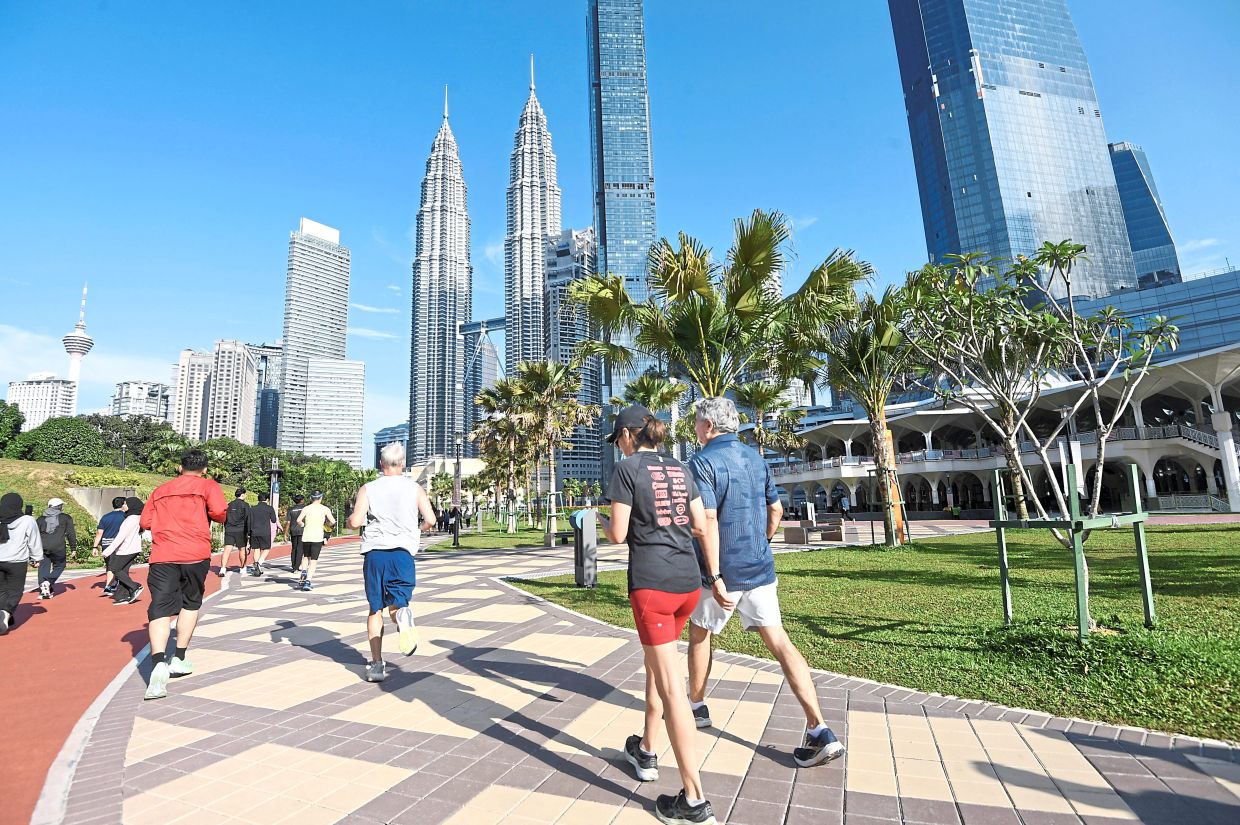PETALING JAYA: The verdict is out.
Surveys and commentaries from abroad have often listed Malaysia as one of the top places for retirement.
One of the more recent reports, titled “The Best Places To Retire Abroad In 2025”, came out in the established American business magazine Forbes last month.
Based on costs, amenities, healthcare, language, crime rates and climate risk, the report described Malaysia as a place that offers “Asian culture at a discount”.
Undoubtedly, Malaysia’s profile is rising as a premier retirement destination.
But experts in the country have pointed out a number of areas that needed improvement to ensure the country’s long-term competitiveness and sustainability in the global retirement market.
Malaysian Coalition on Ageing (MCOA) chairman Cheah Tuck Wing said Malaysia’s healthcare system is widely praised for its facilities, skilled professionals and relatively low costs.
“We have excellent private hospitals serving both medical tourists and expatriates, while public healthcare remains affordable for locals. However, the growing demand is exerting pressure on the public system, with only around 65 geriatricians serving the entire nation.”
Cheah highlighted a critical shortage of trained caregivers and nurses, which is exacerbated by the brain drain of healthcare professionals seeking better opportunities abroad.
“This exodus must be addressed with urgency,” he said.
On the housing front, Cheah noted that Malaysia offers a broad spectrum of accommodation – from upscale condominiums to retirement villages designed for both affluent Malaysians and expatriates.
The Malaysia My Second Home (MM2H) programme, introduced to attract foreigners – particularly retirees and investors – to live and invest in the country, has received 3,019 applications since its revamped policy took effect in October 2024.
As of June 30, the applications comprised 48 under the Platinum tier, 137 under Gold, 2,434 under Silver and 400 in the Special Economic or Financial Zone category.
Of these, 1,294 have been approved, including 19 in Platinum, 61 in Gold, 1,020 in Silver and 194 in the special zone category.
Cheah advocated greater support for Private Retirement Schemes and investment in geriatric care facilities such as nursing homes and home-based services.
To cultivate a more holistic retirement ecosystem, he proposed the development of integrated retirement enclaves that combine healthcare, leisure and community support.
One pressing concern, he said, is the lack of regulation covering retirement villages.
“Currently, only care homes registered under the Welfare Department are regulated. The enforcement of the Private Healthcare Facilities and Services Act should be expanded to include retirement villages to build public trust – both locally and internationally,” he said.
Cheah claimed that many care centres continue to operate without licences due to cumbersome and inconsistent approval processes across different states.
Compounding the issue, he said many centres employ foreign workers under domestic maid visas, often without proper training.
Another suggestion from him touched on the need for reliable transport options such as MRT, LRT and ride-hailing which are vital for seniors’ mobility, and tourism-friendly infrastructure that would enhance quality of life.
“Basic provisions like wheelchair access and walkable pavements remain inadequate in many areas,” he added.
Cheah emphasised the need to position Malaysia as a global retirement hub by promoting its low cost of living, accessible healthcare and appealing lifestyle.
“We must foster public-private partnerships to build secure, integrated retirement communities with healthcare and leisure offerings, while also expanding digital healthcare services such as telemedicine and mobile health,” he said.
Senior lecturer Dr Nasrudin Sharkawi of Universiti Sains Islam Malaysia said Malaysia has the necessary foundation to become a leading retirement destination, but more needs to be done to make urban areas truly age-inclusive.
From an architectural and urban planning perspective, he said the country offers advantages such as affordable cost of living – a key draw for retirees on fixed incomes.
Its healthcare system, with access to both public and private facilities, also provides quality medical care in major cities at a fraction of the price charged in many Western countries.
The warm climate, diverse culture and peaceful environment in many towns and suburbs further enhance Malaysia’s appeal, while the rise of retirement villages and age-focused housing projects reflects a growing awareness of age-sensitive design in the private sector.
However, Dr Nasrudin noted that several improvements are still needed for Malaysia to be fully qualified as an ideal retirement destination.
He said public infrastructure such as pedestrian walkways, public transport and urban accessibility must be strengthened, while long-term visa policies for foreign retirees and structured community care for locals require greater attention.
He also emphasised the need for inclusivity in design, ensuring that all developments – not only specialised projects – follow universal design principles.
“Malaysia is progressing, but unless senior-friendly planning is adopted across both public and private sectors nationwide, retirement here will remain viable only for the privileged few,” he warned.
Tan Kian Aun, immediate past president of the Malaysian Institute of Estate Agents said that in recent years, purpose-built retirement communities have emerged in areas such as the Klang Valley, Seremban, Ipoh and Kuching, offering secure, community-oriented environments.
“Foreign retirees are attracted by Malaysia’s high quality of life and comfortable living conditions,” said Tan.
However, he raised concerns over affordability, stating that high-end retirement homes with healthcare and recreational amenities are typically accessible only to wealthier retirees.
He spoke on the need for regulation, noting the absence of a comprehensive national framework for retirement villages.
Despite these challenges, Tan said such communities offer substantial benefits.
“They provide a sense of safety and reduce isolation, supporting mental well-being through social interaction.
“Feedback from foreign retirees has been overwhelmingly positive.”
